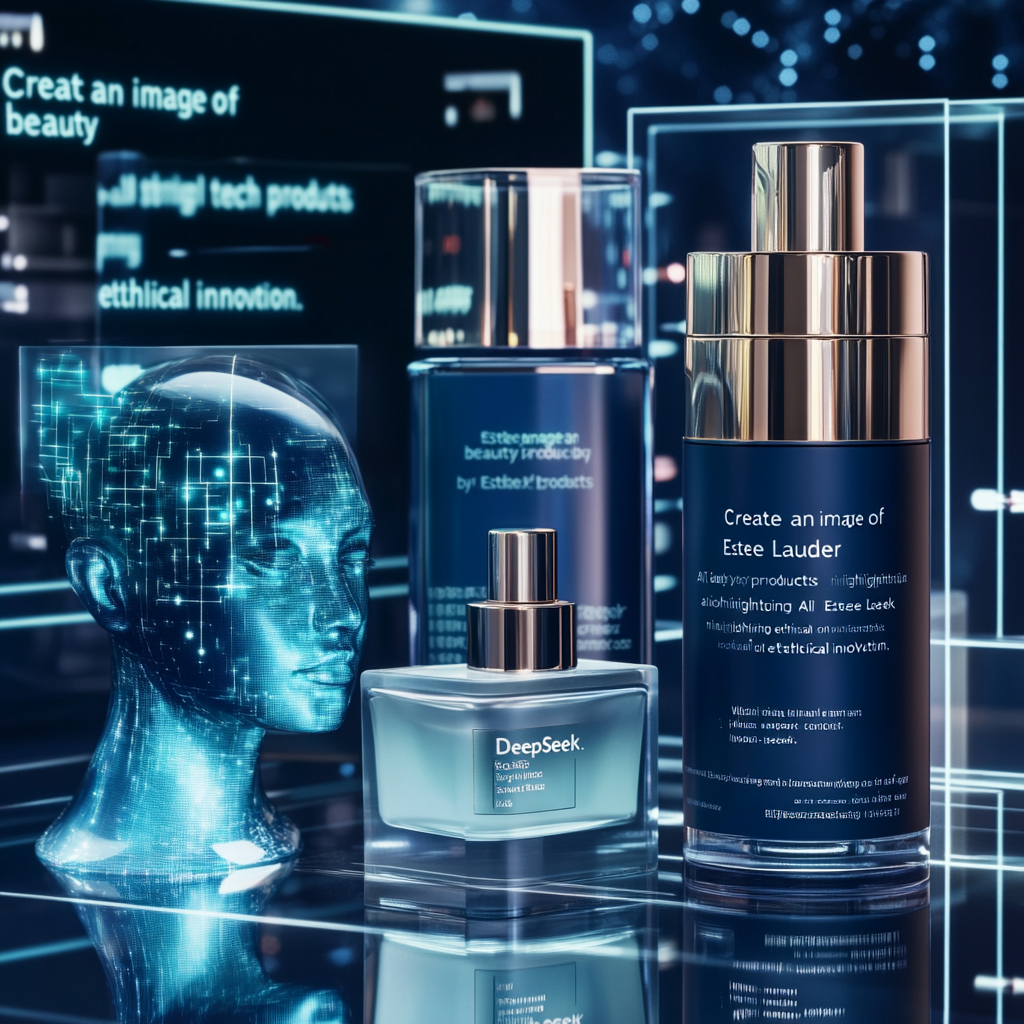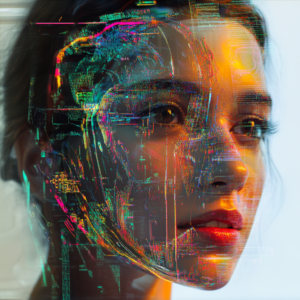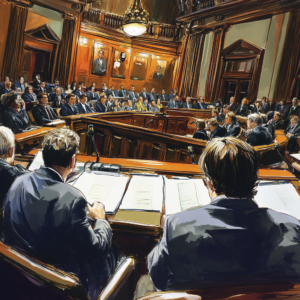
“AI, Ethics, and Business: Navigating the Beauty and Tech Landscape with Estée Lauder and DeepSeek”
AI, Ethics, and Beauty: The Estée Lauder Odyssey and DeepSeek’s Rise
Welcome to the digital runway where algorithms mingle with makeup palettes. The beauty industry has confidently strutted onto the information superhighway, all thanks to AI advancements that not only promise to enhance our looks but also spark heated debates about ethics. At the front of this glamorous parade is Estée Lauder, a brand attempting to balance innovation and ethical responsibility. Meanwhile, in the shadows, a new contender is rising in China—DeepSeek, an AI powerhouse challenging the norms on an international scale. Strap in as we navigate through the highs and lows of AI’s foray into the beauty realm and reflect on the moral aspirations we ought to uphold.
Estée Lauder’s Journey: Innovating Beauty with Caution
Estée Lauder has long been recognized for its class and elegance. But in the realm of AI, they’ve embarked on a journey that marries creativity with technology. One sparkling example is their “try-on” feature, allowing users to see how makeup looks on their own faces through augmented reality. Yet, this shiny facade didn’t come without controversy. In Illinois, they found themselves embroiled in a legal saga concerning the state’s biometric privacy laws (BIPA). In what some might call a bemusing twist of fate, a judge ruled in their favor, determining that the plaintiffs failed to prove facial scans were tied to any personal identity. It was a ruling that reverberated loudly—transparency is not merely an option; it’s an imperative for ethical AI, especially regarding sensitive data like facial recognition[1].
But that’s just the tip of the iceberg. Estée Lauder isn’t merely resting on their laurels. Their endeavors include groundbreaking initiatives like the Voice-Enabled Makeup Assistant (VMA), designed to guide visually impaired users in applying their beauty products through voice prompts. This innovation is not just a tech gimmick; it serves a deeper purpose by enhancing accessibility and, most importantly, inclusivity in the beauty landscape[5]. Such projects illustrate how AI can be a powerful force for good—if wielded with care. However, the journey hasn’t been without its bumps.
The Cautionary Tale of AI in Recruitment
And what a bump it was! In a head-scratching moment, MAC Cosmetics (a subsidiary of Estée Lauder) became embroiled in a scandal over AI-driven recruitment practices. They opted for HireVue’s AI, which assessed candidates based on their body language and facial expressions during interviews. However, the algorithm’s reliability came into question as a former employee claimed unfair rejection based solely on AI insights. The AI’s facial analysis features were pulled in 2020, raising profound questions about biases baked into the machine learning model. If a company steeped in beauty can falter at human nuances, what’s to stop other industries from stumbling into ethical quicksands? [3]
Contrasting Cultures: Enter DeepSeek
While Estée Lauder tiptoes through a regulatory minefield in the West, China has birthed a player with ambitions that reach for the stars—DeepSeek. With the backing of the Chinese government, this emerging AI entity seeks to rival titans like OpenAI and Google DeepMind. However, DeepSeek steps into a world where regulatory frameworks resemble a patchwork quilt—fragmented and often ineffective. The absence of cohesive global AI laws creates a breeding ground for rapid innovation potentially devoid of ethical constraints, provoking concerns about accountability and respect for human rights[4]. It’s the Wild West of AI, and companies like DeepSeek are galloping forward, but with what moral compass?
A Tightrope Walk: Marketing in the Age of AI
Estée Lauder’s recent collaboration with Adobe’s Firefly AI exemplifies the ethical tightrope brands must walk. This powerful alliance aims to supercharge their global marketing campaigns through AI-generated creative. While such innovations can improve efficiency, they bring forth an authenticity crisis looming over the industry. Imagine a marketing world flooded with AI-generated “before-and-after” photos that could easily mislead consumers. Although Estée Lauder has pledged to avoid AI in depicting human faces or efficacy claims, the temptation to edge toward convenience at the cost of authenticity is a perilous one[4].
Key Takeaways: Balancing Innovation with Integrity
Estée Lauder’s unfolding saga holds vital lessons for other businesses tiptoeing into the AI realm:
- Transparency is not optional: Companies must communicate their data practices with absolute clarity. Estée Lauder’s fragrance app exemplified this with its well-outlined opt-in consent model[2].
- Data diversity is key: To avoid perpetuating biases, companies need to ensure their AI systems are trained on inclusive datasets, particularly in industries reliant on diversity, like beauty[2][5].
- Human oversight matters: As demonstrated in the MAC recruitment case, algorithms must be a supplement to, not a replacement for, human judgment in sensitive domains[3].
Meanwhile, the meteoric ascent of DeepSeek underscores a larger dilemma: Without established global standards, can nations harness the power of AI responsibly? Entities like UNESCO and the EU are busy drafting guidelines, but the challenge remains—how effective will implementation be? The call for corporate accountability and international collaboration has never been more vital[4].
A Call to Action
Want to stay up to date with the latest news on neural networks and automation? Subscribe to our Telegram channel: @ethicadvizor.
As the beauty industry experiences an AI renaissance accompanied by ethical scrutiny, the Estée Lauder case serves as a powerful reminder: ethical considerations are not just an added value—they’re essential to corporate survival. The question looms for every innovator: will your AI advancements uplift society or will they trigger the next wave of ethical dilemmas? Balancing innovation with integrity is the charge of our time—let’s rise to the occasion and ensure that our technological progress does not come at the cost of our humanity.

